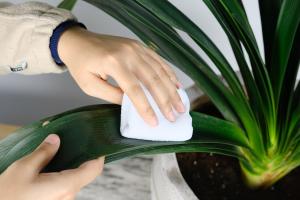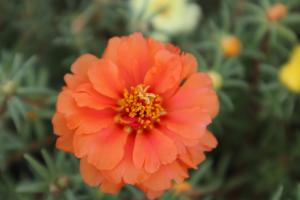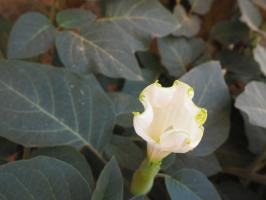Wire winding method
This method can not only support the flower branches, but also overcome some defects in the shape of flower branches. Wire with enough hardness should be wound around the flower branches according to their own ideas, but the selected wire should not be too thick, which will not affect the ornamental effect of flower arrangement. For aesthetic effect, the metal wire can be wrapped with green cotton paper or painted with green paint
Wire threading method
This method is suitable for hollow flower branches, such as celery, calendula, Fu Lang flower, etc. Select the wire with appropriate thickness and insert it from the incision or the center of the stamen. If the part near the flower is difficult to pass through, it can be handled flexibly according to the situation, or it can not completely penetrate the flower branch, or when it is partially penetrated and partially wound

Inlaid wedge molding method
This method is suitable for rough and hard woody flowers. Triangular wedges can be inserted into the branch incision to achieve natural beauty without exposing artificial traces
Incision branch bending method
If the bending angle required by the flower branch is not large, the branch can be cut obliquely with scissors. The cutting depth should not exceed 2 / 3 of the branch diameter, and slowly bend the branch by hand

Leaf rolling method
Flowers such as Indocalamus leaf and book belt grass can change their original shape by curling. You can take a leaf and flatten it, roll it from the leaf tip to the leaf stem with a thin stick, and the leaf still has a certain degree of curl until you release your hand
Circle leaf method
For leaves with petioles and soft leaves, such as Indocalamus leaves and ginger leaves, you can take a leaf to bend, tie a small hole in the leaf tip, and then insert the petiole

Support setting method
First prepare the wire and transparent glue, then put the blade down flat, attach the wire to the edge of the central vein, and then stick it with transparent glue
Leaf trimming deformation method
This method is suitable for plant leaves with wide leaf surface and hard texture, such as palm leaves and iron tree leaves. The leaves can be trimmed into circular, fan-shaped and other shapes< span>


 jackfruit
jackfruit snake plant
snake plant hibiscus
hibiscus hydrangea
hydrangea lavender
lavender Green roses climb al...
Green roses climb al... If you don't pay att...
If you don't pay att... Management of four g...
Management of four g...

































